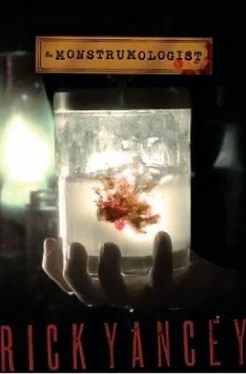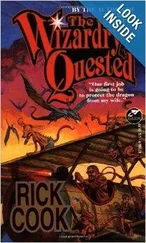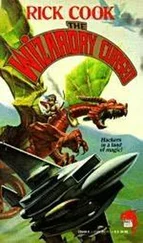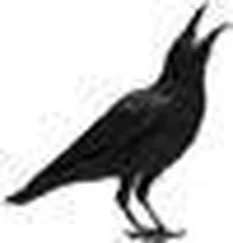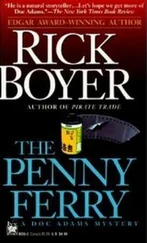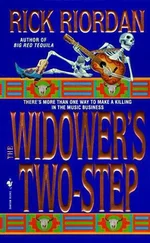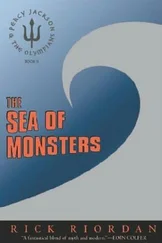“The whiskey, Mrs. Bratton!” he shouted over his shoulder. “And a bottle of aspirin!”
We returned to Varner’s room. Warthrop had covered him again, but the smell of human decay still lingered in the air. I placed the chair beside the bed, Warthrop sat down, and the deathwatch began. Mrs. Bratton arrived with the whiskey and the aspirin, refusing to cross the threshold, staring daggers at Warthrop as I took the tray from her.
With casualness bizarre in this dolorous circumstance, she asked, “I’ve baked a batch of cranberry muffins. Would you or your boy care for one, Doctor?”
“No, thank you,” replied the doctor. He swallowed hard. “I’m not hungry.”
“As you like,” she said archly. “Will you be needing anything else, Doctor?”
He ignored her. She glanced at me. I looked away. She left us.
“Close the door, Will Henry,” he said softly. He lifted Varner’s head and slipped four aspirin into his half-open mouth. He pressed the mouth of the bottle against his discolored lips. “Drink, Hezekiah. Drink.”
For the next hour the captain slipped in and out of consciousness, muttering incoherently whether awake or passed out, groaning and sighing, grunting and moaning, eyes, even when closed, ever moving. Dr. Starr never appeared.
“We’ve a Hydra in this affair, Will Henry,” Warthrop said as he stroked Varner’s brow. “For every puzzle solved, two more rise in its place. We now know only two of the creatures were brought to our shores. Given an average birthrate of two offspring per year and accounting for losses owing to accident and disease-and the occasional male lost during the breeding season-it appears both must have survived the grounding of the Feronia , and the pod we encountered is the sole progeny of the original pair. Thirty to thirty-five individuals, then… and no more.”
He sighed. “Which raises the question of why. Why did my father desire more than one? If he wished to study the species, either in the wild or in the captivity of the Benin, why did he not go to Africa himself? My mother was dead; I was away at school in London; there were no ties to keep him in New Jerusalem. He had shown no hesitation in the past to go wherever his inquiries led him, and was no stranger to hazardous expeditions. He wanted living specimens brought here, and he paid a king’s ransom for it. Why?”
He stroked the old man’s brow absently as if his ministrations could coax out the answer. “ Why?”
Neither the dying man nor I could offer a plausible explanation: He was unconscious and I had reached the end of my endurance. I sat upon the floor with my back pressed against the wall, unable to stifle my yawns or keep my heavy lids from drooping. The doctor swam in and out of focus, and the sound of his voice receded into the pooling shadows of the little room. The hum of the flies, the captain’s ragged breath, the rhythmic creak of the rocking chair, even the muffled symphony of the afflicted in the hall without-all merged in my ears to a lulling drone. I fell asleep as dawn approached, but not the doctor. With bowed back he bore the burden his father had bequeathed to him. He did not rest; he kept the vigil. Though his body was still, his mind furiously worked on.
I awoke with a stiff neck and a very bad headache. The filthy windowpane filtered the meritorious morning sun, whose light broke like waves against the seawall of dust and grime. In the gloom I could make out the doctor, still sitting in the small rocking chair, fully alert, chin cupped in his hand as he considered with bloodshot eye the immotile form before him. Between the sleeping and the waking, Warthrop had drawn the covers over the captain’s head.
Hezekiah Varner was no more.
I rose upon wobbly legs, using the wall behind me for support. The doctor looked not my way, but sighed loudly and rubbed his face. I could hear the palm of his hand scratching against his unshaven cheek.
“It is finished, Will Henry,” he said.
I offered meekly, “I’m sorry, sir.”
“Sorry? Yes, I too am sorry. All of this”-he gestured toward the bed-“is exceedingly sorry , Will Henry.”
He pushed himself to his feet and swayed for a moment on legs that did not seem much sturdier than mine. I followed him from the room. Together we walked somnolently down the long hallway, crowded as ever with the calls and cries of the tormented. Mrs. Bratton was waiting for us at the foot of the stairs. She gave the doctor an impassive nod.
“And how is the captain this morning, Doctor Warthrop?” she asked.
“Dead,” replied Warthrop. “Where is Starr?”
“Dr. Starr has been called away on urgent business.”
The monstrumologist stared at her for a long moment, and then laughed mirthlessly. “No doubt he has!” he exclaimed. “And you will be quite busy in his absence, I am sure. There is much to be done once I’ve notified the state police, isn’t there, Mrs. Bratton?”
She responded stiffly, “I’ve no idea what you mean, Dr. Warthrop.”
“Regrettably that very well might be so,” acknowledged the doctor icily. “And all the more appalling if it is! To view your shameful neglect as altogether fitting and humane is beyond deplorable-it is inhuman. You may inform your master that I am not finished here. I am not finished, but Motley Hill is. I shall personally see to it that he is punished to the full extent of the law for the homicide of Hezekiah Varner.”
He stepped toward her. She flinched, shrinking back in the fiery face of his righteous indignation.
“And I pray-as he should not -that the law shows him-and you- the same mercy you have shown these poor souls entrusted to your care.”
He brushed past her cowering form without waiting for a reply. He threw open the heavy front door with such force that it slammed into the wall with a reverberating crash. Halfway across the overgrown lawn, the doctor drew rein and turned in his saddle to regard the old house with its peeling paint and sagging roof, brooding in the bright morning light.
“Though Varner himself might argue it about his life,” he mused, “it cannot be said about his death, Will Henry. His death shall not be in vain. There will be justice for Hezekiah Varner and all those who suffer inside those accursed walls. I will see to that. By God, I will see to that!”
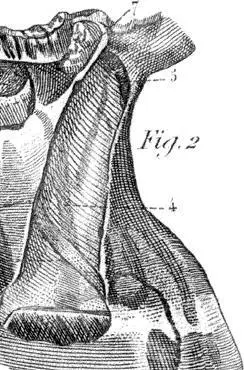
*
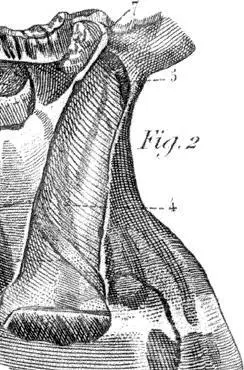
*
“You Have Failed Me”
I did not know what to expect upon our return to 425 Harrington Lane, beyond something for my empty stomach and a pillow for my weary head. From the curt summons I had posted by express mail the day before, I suspected the doctor intended to await the arrival of John Kearns before proceeding against the Anthropophagi, but I dared not ask him, for he had quickly fallen into one of his taciturn moods, growing more uncommunicative with each passing mile.
He left me to stable our horses while he disappeared inside the house. Once they were watered and fed and the dusty miles brushed from their coats, and after a brief visit with ol’ Bess, I dragged myself inside, indulging in a tiny, flickering hope that the table might be laid with something of passing palatability. It was a vain hope. The basement door hung open, the lights below burned brightly, and ascending the narrow staircase was a clamor of slamming drawers and heavy objects being dragged or shoved across the stone floor. After a few minutes of this violent upheaval, he came bounding up the stairs, gasping for breath, cheeks ablaze. Ignoring me, he barreled down the hall and into the study, wherein another ruckus of slamming drawers began. When I peeked through the doorway, he was sitting at the desk, rifling through a drawer.
Читать дальше
